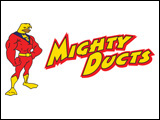Steinbach and surrounding municipalities are fortunate to have a composting enthusiast working at the solid waste department at the Steinbach landfill site. Eldon Wallman has long been a crusader to keep compostable materials out of the landfill. But, as Judy Peters says, we are one of the last cities in Canada to implement a full composting program. Why do we have to be dragged, kicking and screaming, into the 21st century?
Frequently those of us concerned about environmental issues get chastised for not basing our opinions on good science. Well, on this file, indisputable science is in and there is no justification for dragging our feet when it comes to diverting all compostable material from our landfill site.
One of the major problems with dumping grass clippings, leaves and kitchen waste into the landfill is that, in the absence of oxygen, anaerobic decomposition takes place which produces methane gas. Methane is twenty times more potent than carbon dioxide as a gas affecting global warming. While some of this methane gets trapped under ground, much of it does escape. Many communities across North America have begun capturing this gas from landfill sites and using it to heat buildings, create electricity and even power garbage trucks.
While this is a commendable way of mitigating damages caused by destructive habits of the past, the only viable option for the future is to refuse to bury organic materials in our landfill. The science and technology required to create compost instead of methane is at our finger tips. And there is reason for optimism when one surveys the actions of many cities, towns and municipalities across the country. Many jurisdictions already refuse organic matter at their landfill sites outright, offering instead some form of a composting program.
Going one step further, as many people do these days, is to find ways of composting our own materials so they don’t even have to be hauled to a central site. As Wallman has repeatedly reminded us, one of the best way to take care of grass clippings is to chop them fine with a mulching blade on your mower and let them decompose right on your lawn. This conserves moisture, fertilizes the lawn naturally and enhances weed control. And there are a variety of methods homeowners can use to compost leaves and kitchen waste without odors, producing a rich humus that can be used as a natural fertilizer.
Judy Peters is right to say that we should have gotten our act together here in Steinbach by now. If Eldon Wallman had had his way, that is where we would be right now. But to make it happen it must have the full support of city council and administration. More than supporting the vision, city officials must make a composting program a priority. City councilors, of whatever stripe, should find the prospect of extending the life of our present landfill site by five to ten years enticing. Talk about saving money? There you have it.



